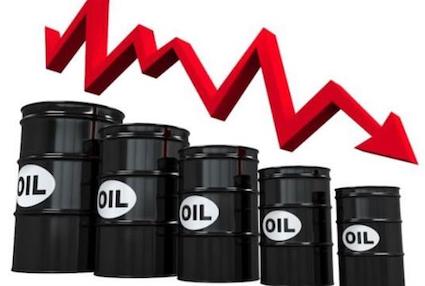Najib’s caution on Budget 2019 proven correct

(FMT) – Former prime minister Najib Razak continued to pour scorn on Pakatan Harapan’s (PH) maiden budget today, saying its decision to formulate the budget based on the Brent crude oil price of US$72 per barrel had backfired.
Najib (BN-Pekan) said he had warned the government, during his debate on the mid-term review of the 11th Malaysia Plan, not to use the pricing of US$70 per barrel to formulate the budget.
He noted that back then, the crude oil price was US$80 a barrel.
“This budget was fixed on a crude oil price of US$72. But yesterday, the Brent crude oil price dropped to US$65.
“It has not even been 10 days, and already the 2019 Budget assumptions have become irrelevant.
“This is a serious matter. What if it drops further, until US$55?” he said when debating the 2019 Budget in the Dewan Rakyat.
Najib, the former finance minister, said in formulating any budget, prudence must be a key consideration, and formulators should not take a “best-case scenario”.
“We need to be prudent and conservative. If the conditions improve, we will get a bonus. If it gets worse, we would have already made preparations.”
Najib noted that when he was prime minister, the price of oil had dropped to as low as US$28 per barrel, but because the Barisan Nasional (BN) government was prudent, the country did not go through a financial crisis and economic recession.
“What are the implications on the country’s debt and revenue? I hope not, but if the price drops further, there is the possibility of a scenario which many people say can happen,” he added.
Najib previously cautioned the government against using the global crude oil pricing of US$70 per barrel, saying the previous BN government had tabled its budget for the year based on the crude oil price of US$52.
Credit rating may be affected
Najib also repeated his warning that the country’s credit rating could be affected following ratings agency Moody’s decision to downgrade Petronas’ outlook from stable to negative.
“Is this a precursor to a sovereign downgrade? I fear this is the start, because the credit rating of Petronas is higher than the national rating.
“If Petronas’ rating can be downgraded, it is not impossible for our sovereign rating to be downgraded,” he said.
Should a downgrade happen, Najib said it would result in a sudden increase in the cost of servicing debts.
He said the PH government had always said the country’s debt was at RM1 trillion, but that this was proven otherwise in the accounts, which stated RM686 billion.
“The debt-to-GDP ratio is at 50.7%. In the past, the BN government targeted a deficit of 2.8%. But if the deficit goes up to (the targeted) 3.7% this year, and next year at 3.4%… if the deficit continues to go up, the country’s debt will increase to RM820 billion.
“This would mean that PH’s dream of ‘achieving’ RM1 trillion in debt would become a reality,” he added.
Why slash the aid for people
Najib also asked why the PH government had “reduced” the aid for Malaysians, even when the budget expenditure was increased by 10%.
“By right, in such a situation, where the people are facing hardships, the prices of commodities have dropped and the cost of living gone up, the budget should have increased the financial assistance for the people.
“Why has it been reduced instead?”
At this point, Cha Kee Chin (PH-Rasah) stood up to ask what Najib had done in the last 10 years. He was backed up by RSN Rayer (PH-Jelutong). However, Najib did not give way to them.
Najib also touched on what he called an “overly optimistic” gross domestic product forecast of 4.9%, saying many analysts had said this was not possible.
“I have not met one person who said 4.9%. Many are saying 4.0 or 4.2%. Some are saying it will be even lower than that.
“What are the implications if your forecast is too optimistic? By right, you should be prudent and put the forecast at 4.0 or 4.2%.
“If it goes up to 4.5%, you would have achieved something better.”

